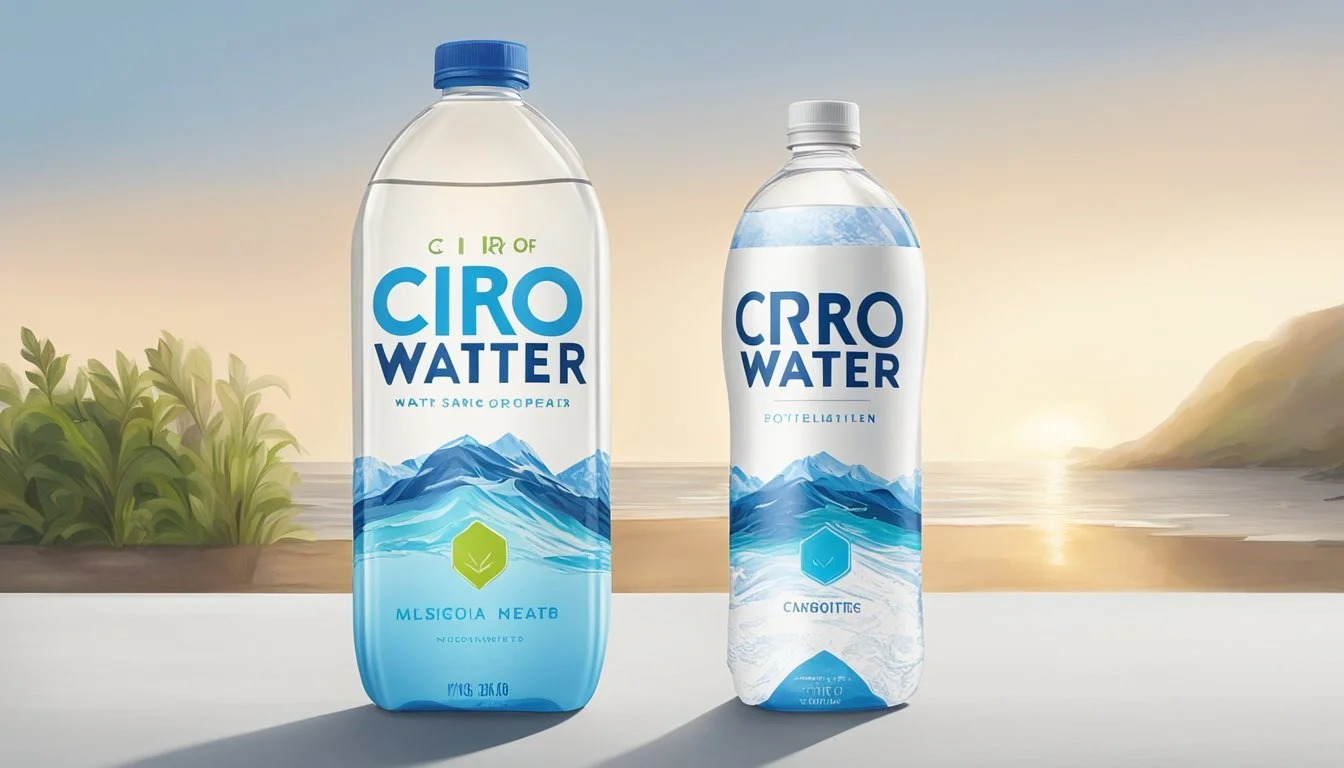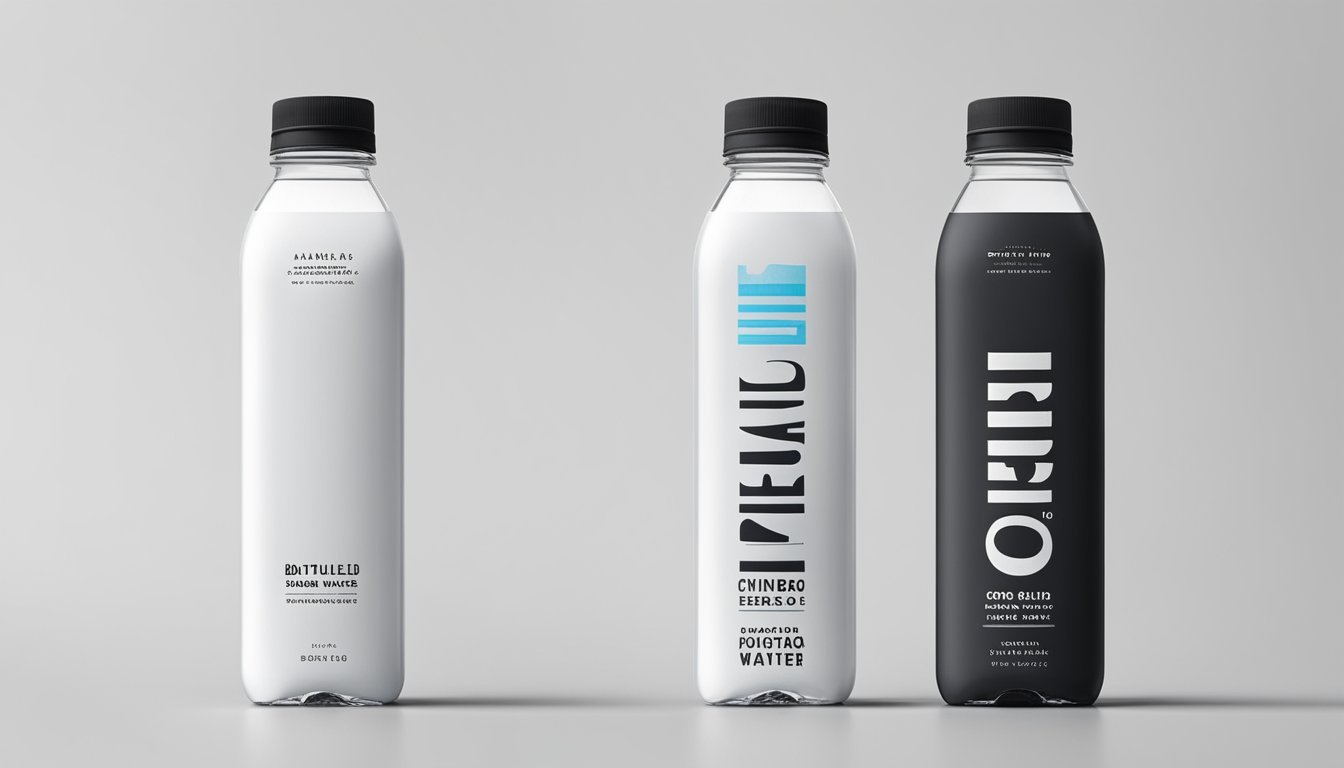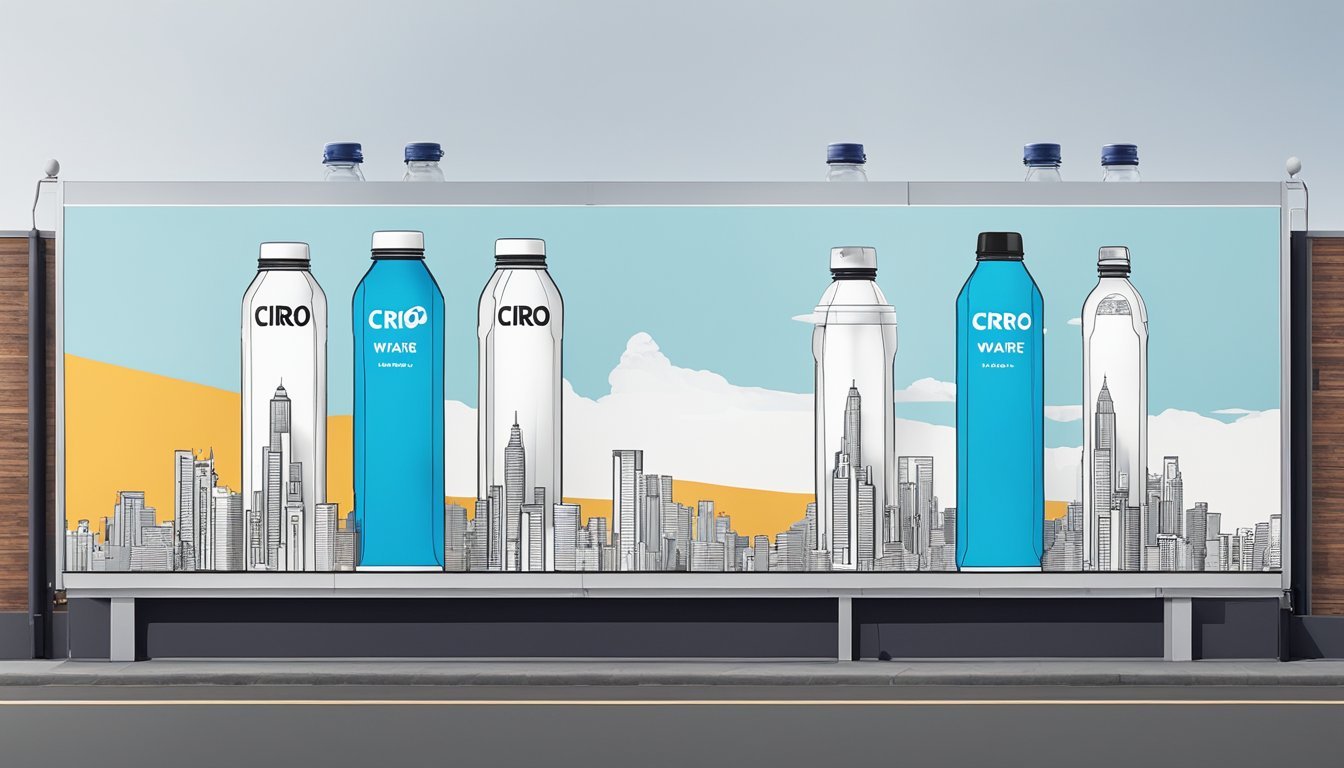Boxed Water vs. Cirro
Comparing Quality and Sustainability
Choosing the right bottled water can be more than just a matter of taste; it's also about considering environmental impact and packaging. When comparing Boxed Water to Cirro, several factors come into play, such as sustainability, flavor, and overall consumer experience. Boxed Water, launched in 2009, touts its paper-based packaging designed to reduce plastic waste, making it a strong contender for eco-conscious consumers.
Cirro, on the other hand, aims to balance high-quality water with convenient packaging. Whether the focus is on flavor purity or packaging sustainability, these waters offer distinct advantages, catering to different preferences and priorities. Boxed Water might win over those prioritizing environmental impact, while Cirro appeals to those looking for reliable taste and convenience.
Readers interested in balancing environmental responsibility with quality hydration will find it compelling to weigh the benefits and trade-offs between these two popular brands. Understanding the unique features and values each brand represents can guide a more informed choice in the quest for better bottled water.
Overview of Boxed Water
Boxed Water is a growing choice among eco-conscious consumers due to its unique packaging and sustainability efforts. This overview will explore its history, mission, and sustainability practices.
History and Mission of Boxed Water
Boxed Water was founded in 2009 with a mission to create a more sustainable alternative to traditional plastic water bottles. The company aimed to reduce the environmental impact of bottled water packaging by using renewable resources.
They introduced water packaged in a carton made from 74% paper, 25% plastic, and 1% aluminum. Their slogan, "Boxed Water Is Better," reflects their commitment to reducing waste and promoting environmental responsibility. By focusing on sustainable packaging, Boxed Water continues to lead efforts in reducing plastic usage.
Sustainability Practices and Impact
Boxed Water's cartons are primarily composed of paper, a renewable resource, which significantly lowers their carbon footprint. Unlike plastic bottles, these cartons are recyclable, helping to reduce environmental pollution.
The company employs practices such as carbon filtration, reverse osmosis, and ultraviolet light to purify its water, ensuring high quality without compromising sustainability. By continually innovating and partnering with reforestation and beach cleanup projects, Boxed Water reinforces its commitment to environmental stewardship.
Overview of Cirro Bottled Water
Cirro Bottled Water focuses on delivering high-quality hydration while upholding strong environmental commitments. The brand positions itself as an eco-friendly alternative in the bottled water market, leveraging sustainable practices in both its product and packaging.
Company Background and Values
Cirro Bottled Water was established with a mission to provide pure, refreshing water with minimal environmental impact. The company emphasizes transparency, quality, and sustainability in its operations.
Founded by a team of environmental enthusiasts, Cirro champions the use of recyclable materials and aims to reduce single-use plastic. Their water is sourced from natural springs, ensuring that every bottle delivers clean, crisp hydration.
The brand strives to maintain a balance between providing a superior product and promoting environmental responsibility.
Environmental Commitments
Cirro's commitment to the environment is evident in its comprehensive sustainability initiatives. The company uses packaging made from recycled materials and is actively exploring biodegradable options.
Cirro focuses on reducing its carbon footprint through energy-efficient production processes and transportation logistics. Their practices include minimizing water waste during bottling and supporting reforestation projects.
Additionally, the brand advocates for environmental awareness and partners with various conservation organizations to tackle plastic pollution. This holistic approach underscores Cirro’s dedication to environmental stewardship.
Comparative Analysis: Packaging and Materials
Boxed Water and Cirro offer distinct approaches to packaging and materials, each aiming to balance sustainability and functionality. Boxed Water utilizes a paper-based carton, while Cirro predominantly uses plastic bottles, exploring alternative materials as well.
Boxed Water's Paper-Based Cartons
Boxed Water employs cartons made primarily from paper — about 74% of the material used. This choice supports a sustainable approach by utilizing renewable resources. The cartons also incorporate a small percentage of aluminum (1%) and plastic film (25%) to ensure the water remains sealed and the paper stays waterproof.
The packaging design of Boxed Water emphasizes a minimalist and eco-friendly ethos. The clean, white carton with bold text stands out on shelves, communicating its green credentials clearly. Furthermore, the bio-based cap adds an extra layer of environmental friendliness, reducing reliance on conventional plastics.
Cirro's Plastic Bottles and Alternatives
Cirro uses traditional plastic bottles but is also exploring more sustainable alternatives. Their plastic bottles are typically made from recyclable PET plastic, a common material in the bottled water industry. PET plastic is reusable and widely accepted in recycling programs, although it still contributes to the issue of single-use plastics.
In pursuit of more sustainable packaging options, Cirro has been researching and developing plant-based plastic alternatives. These materials potentially offer similar functionality as conventional plastics but are derived from renewable resources. This initiative reflects an effort to reduce environmental impact and align with growing consumer preferences for eco-friendly products.
By comparing the two brands, consumers can better understand the environmental implications of their packaging choices and support the option that aligns with their values.
Environmental Stewardship
Boxed Water and Cirro each employ distinct strategies aimed at minimizing environmental impact, focusing strongly on reducing carbon footprints and implementing effective waste management and recycling initiatives.
Reducing Carbon Footprint
Boxed Water prioritizes the use of renewable resources by incorporating 74% paper in its packaging. The company utilizes FSC-certified paper from sustainable forests, which significantly lowers the carbon emissions associated with production. They have also actively invested in reducing the energy footprint of their manufacturing processes.
Cirro, on the other hand, emphasizes lightweight packaging to minimize transportation emissions. By using lighter materials, they can reduce fuel consumption during distribution. Their facilities also aim to use renewable energy sources whenever possible, contributing to fewer overall carbon emissions.
Waste Management and Recycling Initiatives
Boxed Water facilitates carton recycling, a crucial aspect of waste management. Their packaging is designed to be recyclable where facilities exist, and they encourage consumers to recycle the cartons properly. Additionally, Boxed Water employs a small amount of plastic, minimizing the environmental impact compared to fully plastic bottles.
Cirro focuses on recyclable plastic bottles and participates in various recycling initiatives to encourage proper disposal. They partner with local governments and non-profits to improve recycling rates and reduce landfill waste. Moreover, Cirro also emphasizes the importance of reusing bottles to extend the life cycle of their packaging materials.
Both companies are dedicated to enhancing recycling infrastructure and promoting responsible disposal practices, demonstrating their commitment to environmental stewardship.
Drinking Water Quality and Safety
Drinking water quality varies significantly based on filtration methods and materials used. Plastic contamination and health concerns are also essential aspects to consider.
Filtration and Purification Processes
Boxed Water and Cirro use distinct purification processes. Boxed Water emphasizes eco-friendly packaging, utilizing a mix of sustainable paper, aluminum, and plastic film. The water undergoes multiple filtration steps including reverse osmosis, carbon filtration, and UV light treatment, ensuring high purity.
Cirro, often categorized as purified water, typically employs a multi-step purification process involving similar techniques: activated carbon filtration, reverse osmosis, and UV light treatment. These methods effectively remove a wide range of contaminants including heavy metals, chlorine, and harmful microorganisms.
Both Boxed Water and Cirro focus on delivering high-quality, safe-to-drink water through rigorous filtration methods.
Health Concerns and Plastic Contamination
Plastic contamination, including microplastics and BPA, are major concerns in drinking water safety. Boxed Water's packaging is BPA-free, which reduces the risk of chemical leaching into the water. The use of paper-based cartons additionally minimizes plastic waste and contamination.
Cirro also markets itself as BPA-free, targeting health-conscious consumers wary of plastic-related health risks. However, traditional plastic water bottles may still pose risks of microplastics ingestion over time. It's crucial to note that while both brands strive to maintain high standards, consumers should be vigilant about these potential contaminants.
Choosing between Boxed Water and Cirro may thus come down to a preference for packaging materials and their associated health impacts.
Consumer Convenience and Accessibility
Boxed Water and Cirro offer different approaches to convenience and market availability, which may influence consumer preference. Each product's ease of use and portability, as well as its presence in retail locations, play critical roles in their accessibility.
Ease of Use and Portability
Boxed Water comes in lightweight cartons, making it easy to carry around. The carton’s design includes a resealable cap, ensuring the water stays fresh and can be saved for later consumption. This can be particularly advantageous during activities like hiking or commuting.
Cirro, on the other hand, typically markets its water in glass or stainless steel bottles, adding weight but providing a more durable and potentially reusable container. Using glass can avoid any taste alteration which sometimes occurs with plastic packaging. Stainless steel bottles, while heavier, can also double as reusable water bottles after the water has been consumed, making them an eco-friendly option.
Both packaging types have their pros and cons, but the choice often depends on consumer preferences for portability versus reusability.
Availability in Markets and Stores
Boxed Water is widely available in many retail locations, from supermarkets to convenience stores. Its focus on sustainability and eco-friendly packaging has increased its popularity, making it easier to find in places that prioritize environmentally-friendly products. Many consumers appreciate the renewable materials used in the cartons.
Cirro's glass bottles or stainless steel packaging can sometimes make it more challenging to find, as these materials are less commonly used for single-use bottled water. Specialty stores and certain health food outlets are more likely to carry Cirro due to its premium packaging and focus on purity.
Both Boxed Water and Cirro are making strides in increasing their market presence, but their availability may vary greatly depending on the region and the type of retail outlets present.
Economic and Ethical Considerations
Understanding the economic affordability and ethical practices of Boxed Water and Cirro provides insights into their value for consumers and their impact on society.
Cost Comparison and Affordability
When comparing Boxed Water and Cirro in terms of cost, several factors come into play.
Brand Average Price (per liter) Packaging Materials Boxed Water $2.00 Sustainable paper, aluminum, plastic film Cirro $2.50 Recycled plastic bottles
Boxed Water generally offers a lower price point, making it somewhat more affordable for consumers. Additionally, Boxed Water’s use of paper-based cartons can result in economies of scale due to cheaper raw materials compared to Cirro’s recycled plastic bottles.
Price differences also reflect the costs of purification methods. Boxed Water uses ultraviolet light, carbon filtration, and reverse osmosis, whereas Cirro employs advanced microfiltration techniques, potentially accounting for its higher price.
Company Policies and Ethical Practices
Boxed Water emphasizes sustainability as a core mission. Their packaging, composed of 74% paper, supports their goal of reducing plastic waste. Furthermore, the company actively engages in reforestation efforts, planting trees to offset their carbon footprint. Boxed Water is also certified by various environmental organizations, reinforcing their commitment to ethical practices.
Cirro focuses on reducing ocean plastic through its use of 100% recycled PET bottles. Their business model includes community partnerships to support local clean-up initiatives. Cirro's policies encourage ethical sourcing and fair labor practices, though they are not as broadly recognized by certification bodies as Boxed Water.
Both companies strive for ethical production and environmental responsibility, yet their approaches and certifications differ, affecting consumer perception and choices.
Partnerships and Community Impact
Boxed Water and Cirro have both fostered meaningful partnerships and contributed significantly to their communities, focusing on sustainability and water relief efforts.
Collaborations with Environmental Foundations
Boxed Water has established partnerships with several reforestation foundations. They contribute to initiatives like planting trees in deforested areas, which helps combat climate change and supports wildlife habitats.
Cirro focuses on using renewable resources in their packaging. They have teamed up with organizations to promote sustainability practices in the water industry.
Both companies prioritize eco-friendly collaborations, but Boxed Water's strong ties to reforestation efforts give it a notable edge in environmental impact.
Impact on Global Water Relief Efforts
Boxed Water has joined forces with global water relief foundations to ensure clean water access in underserved communities. Their initiatives include funding water purification systems and providing emergency water supplies during natural disasters.
Cirro also engages in water relief efforts, partnering with nonprofits to improve water quality and sanitation in developing countries. They focus on long-term solutions that provide sustainable access to clean water.
By aligning with reputable water relief organizations, both Boxed Water and Cirro demonstrate their commitment to addressing global water challenges and improving public health worldwide.
Future Trends in Sustainable Bottled Water
The sustainable bottled water industry is set to undergo significant changes. Innovations in packaging and evolving consumer preferences are driving these shifts.
Innovative Alternatives to Traditional Packaging
Companies are exploring plant-based materials and reusable water bottles as alternatives to conventional plastic packaging. For instance, Boxed Water™ uses a combination of sustainable paper, aluminum, and plastic film, while other brands are experimenting with canned water and compostable materials.
Another area of innovation is in the development of plant-based plastics, which aim to reduce the environmental impact further. These alternatives not only minimize waste but also appeal to eco-conscious consumers.
Shifts in Consumer Preferences and Industry Standards
Modern consumers are increasingly wary of greenwashing and prefer products with transparent eco-friendly claims. This has prompted brands to adapt, focusing more on their sustainability credentials.
Reusable water bottles are gaining popularity as a practical and sustainable choice. Industry standards are also changing, with stricter regulations on packaging materials and environmental impact. Brands that fail to meet these new standards risk losing consumer trust.









